How to Travel Japan Without Cultural Missteps
Planning a trip to Japan? This guide introduces 15 surprising Japanese manners and customs — from train etiquette to dining habits and tipping rules — to help you understand the culture and avoid social faux pas.
When in Japan, Do as the Japanese Do
You’ve probably heard the saying, “When in Rome, do as the Romans do.” In Japan, respecting local customs is key to having a smooth, respectful, and enriching travel experience.
Japan is full of cultural habits that may seem strange — or even confusing — to visitors. What’s “normal” to locals might be quite unexpected to you. Without realizing it, you might accidentally break a rule or wonder why everyone is acting a certain way.
To help you navigate with confidence, we’ve selected 15 must-know customs that reflect the heart of Japanese manners and culture.
Public Behavior: Harmony Comes First
1. Be Quiet on Trains and Buses

Public transportation in Japan is remarkably quiet. People avoid talking on the phone and keep conversations to a whisper.
- No phone calls unless it’s an emergency.
- Keep your voice down when chatting with friends.
- Watch your headphone volume — sound leakage is considered rude.
2. Line Up (Always)

Whether you’re waiting for a train, at a bus stop, or in front of a ramen shop, Japanese people naturally form orderly lines. Cutting in line is a big no-no — fairness is highly valued here.
3. Escalator Etiquette

In most cities, one side of the escalator is left open for those in a rush.
- Tokyo (East Japan): Stand on the left, walk on the right.
- Osaka (West Japan): Stand on the right, walk on the left.
Just follow what locals are doing and you’ll be fine!
4. Take Off Your Shoes Indoors
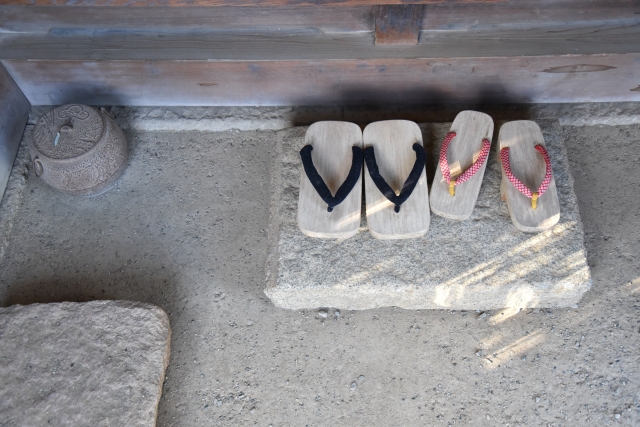
At homes, traditional restaurants, and even some schools or clinics, shoes come off at the entrance. This keeps the inside clean and reflects the cultural idea that your home is a sacred, pure space.
Pro tip: Place your shoes neatly to the side.
🍜 Dining Culture: Gratitude on the Menu
5. Hold Your Bowl While Eating
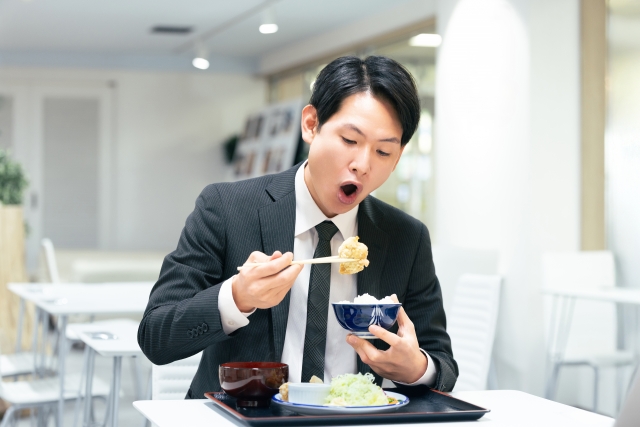
In Japan, it’s polite to lift small bowls (like rice or miso soup) to your mouth. It helps avoid spills and shows good manners — not laziness!
6. Slurp Your Noodles

Don’t be shy — slurping noodles is not only acceptable, it’s a sign you’re enjoying the meal! It also enhances the flavor and cools the noodles.
7. No Tipping
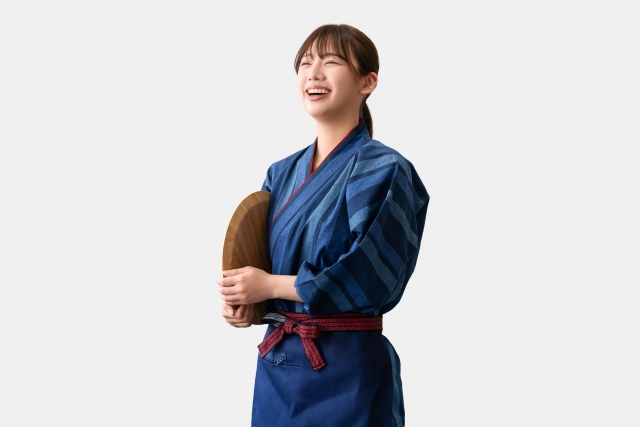
Unlike many countries, tipping is not expected in Japan. In fact, it can make people uncomfortable. Excellent service is simply part of the job.
8. Say “Itadakimasu” and “Gochisousama”
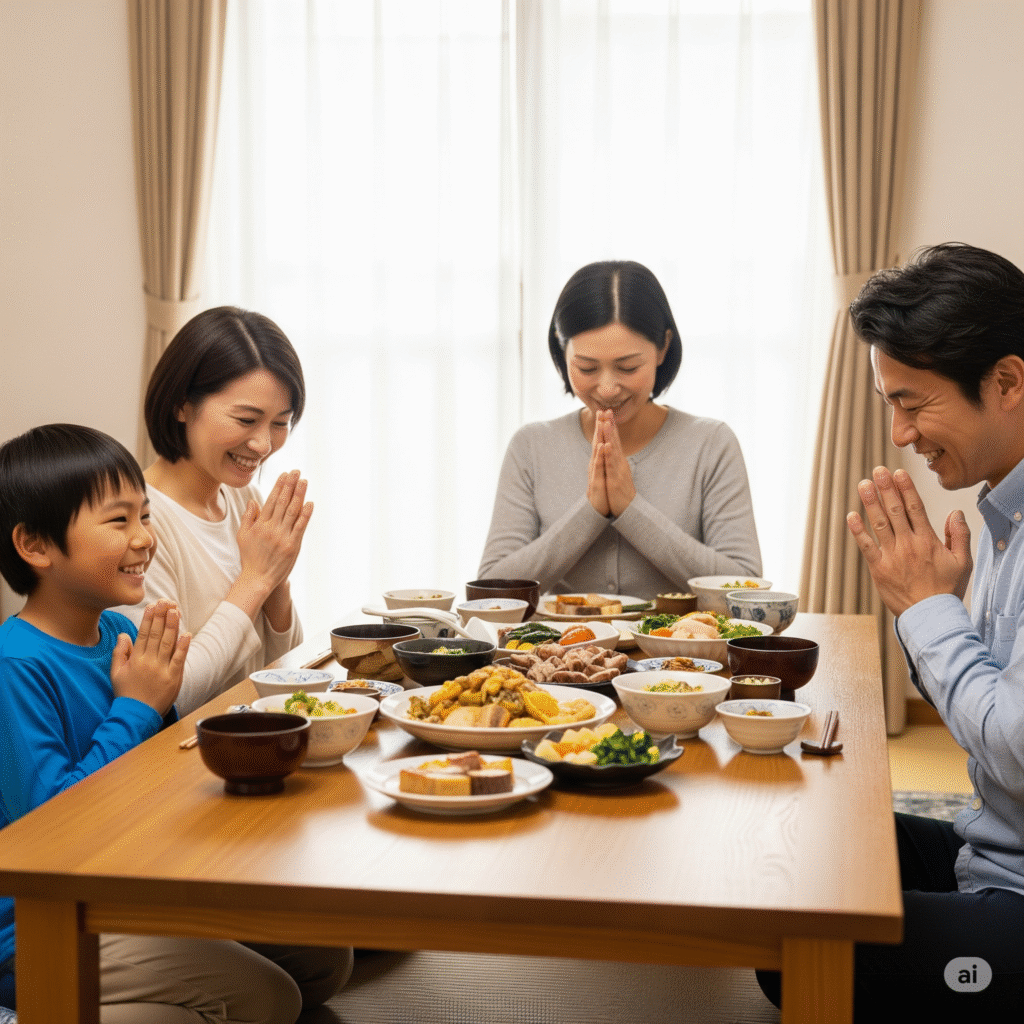
Before eating, people say “itadakimasu” — a phrase expressing gratitude for the meal, the ingredients, and those who prepared it.
After eating, “gochisousama” shows thanks for the delicious food.
🗣️ Communication: More Than Words
9. Bowing (Ojigi) Is Essential

You’ll see people bowing everywhere — greeting, thanking, apologizing, or saying goodbye. You don’t need to master all the types, but a small bow goes a long way in showing respect.
10. Keigo: Polite Language
Japanese has an entire system of honorific speech (keigo) based on social status. You’ll hear extremely polite language at shops or stations — don’t worry, you’re not expected to use it, but it’s fascinating to observe!
11. “Sumimasen” Means Many Things
This useful word can mean:
- Sorry (e.g. when bumping into someone)
- Excuse me (e.g. to call a waiter)
- Thank you (e.g. to show humble gratitude)
12. Omiyage: The Art of Souvenir-Giving

When returning from a trip, people bring back small gifts for friends, family, or coworkers. These thoughtful souvenirs (omiyage) are a way of saying, “I thought of you.”
🏡 Daily Life: Hidden Details Worth Knowing
13. Strict Trash Separation
Garbage is separated into burnable, non-burnable, plastic, bottles, cans, etc. Rules vary by city — always check the local signage, and don’t forget to wash your recyclables!
14. Bathing Etiquette at Home
In Japanese homes, the bathtub is for soaking only — not for washing. First, you scrub and rinse your body outside the tub, then enter the clean water to relax. Families often share the same bathwater (cleanliness is key!).
15. Close Doors Behind You
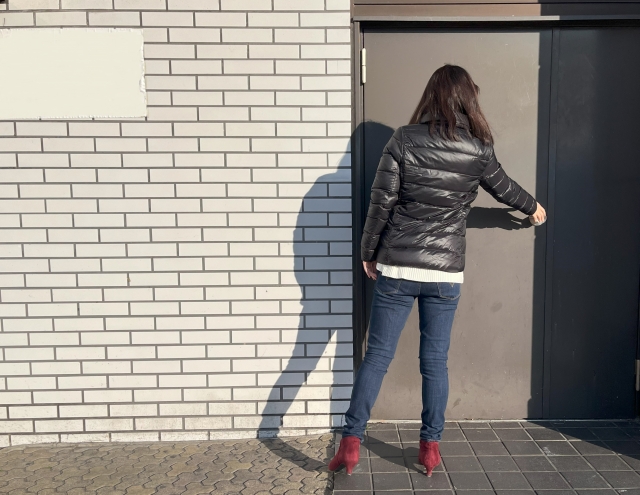
Whether it’s a room, restroom, or train, always close the door behind you. It’s about privacy, comfort, and — often — conserving energy from air conditioning or heating.
🙇 Final Thoughts: Manners as a Form of Kindness
Japanese manners may seem strict or complicated at first, but they all come from a place of respect, gratitude, and thoughtfulness — the essence of omotenashi, Japan’s spirit of hospitality.
You don’t have to be perfect. Just being curious and respectful goes a long way. Locals will appreciate your effort, and you’ll enjoy a deeper, more memorable journey.
Have a wonderful trip to Japan! 🇯🇵✨